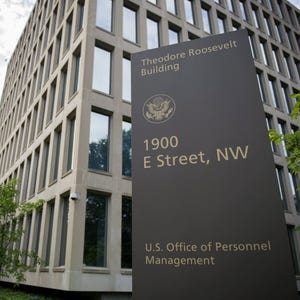Are paper ballots really a superior technology to voting machines? Absolutely.
Somebody — probably, though not certainly, Vladimir Putin ’s intelligence apparatus — has hacked the Democratic Committee’s email servers and released some of what it found via the Wikileaks site. As Harvard law professor Jack Goldsmith notes, this is something new: Although meddling in foreign elections is old stuff for intelligence agencies (including our own), this sort of email release isunprecedented.
As disruptive as the DNC email release has been, there’s room for something much worse: A foreign government could hack voting machines, shut down election computers, or delete or alter voter registration information, turning Election Day into a snarled mess and calling the results into question regardless of who wins.
Worse yet, hackers are already working on this.
Voting systems rely on trust. Voters have to trust that their own vote is recorded and counted accurately; they also have to trust that the overall count is accurate, and that only eligible voters are allowed to vote. (When an ineligible voter casts a vote, it cancels out the vote of a legitimate voter every bit as much as if his or her ballot had simply been shredded.)
The problem is that electronic systems — much less the Internet-based systems that some people are talking about moving to — can’t possibly provide that degree of reliability. They’re too easy to hack, and alterations are too easy to conceal. If the powers-that-be can’t protect confidential emails, or government employees’ security information, then they can’t guarantee the sanctity of voting systems.
My own solution is a back-to-the-future one: In an age of computer hackers and, apparently, hopeless failures in data security, we should switch from computers to a superior technology. In this case, it’s paper ballots.
Are paper ballots really a superior technology to voting machines? Absolutely.
When you vote electronically, the only data recorded is the vote itself. Compare that to a paper ballot where you mark an "X" next to the candidate’s name. When you cast a paper ballot, all sorts of other information is captured along with your vote: The color of ink you used, individual variations in handwriting, even the condition of the paper you’re writing on. Changing that across large numbers of ballots without being obvious is hard, and requires physical access to the ballots; doing it on a computer is a matter of a few keystrokes, and can be done from Minsk or Shanghai.
Paper ballots may seem old-fashioned, but an emphasis on computers just for technology’s sake reminds me of stories about housewives in the 1950s who preferred canned vegetables to fresh ones because canned food seemed more modern. Just because a technology is newer doesn’t necessarily mean it’s better.
POLICING THE USA: A look at race, justice, media
The only downside of paper ballots is that they take longer to count than voting machine totals. But although cable-news operations like fast returns, that’s hardly worth it when there’s a risk that those returns might be fraudulent.
Voting machines, of course, generate lucrative government contracts for equipment and support that can be awarded to favored companies, while paper ballots only require a printing press. But if we’re really worried about foreign interference in American elections — and the evidence suggests that we ought to be — then we should be willing to make this change.
Worried about foreign hacking? Then you should support paper ballots, an idea whose time has come again. And it’s only three months until November.
Glenn Harlan Reynolds, a University of Tennessee law professor and the author of The New School: How the Information Age Will Save American Education from Itself, is a member of USA TODAY's Board of Contributors. Follow him on Twitter@Instapundit.


No comments:
Post a Comment